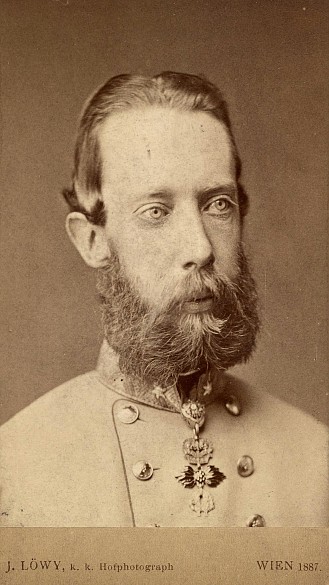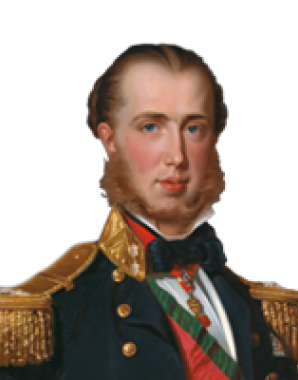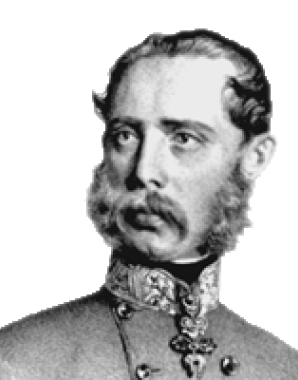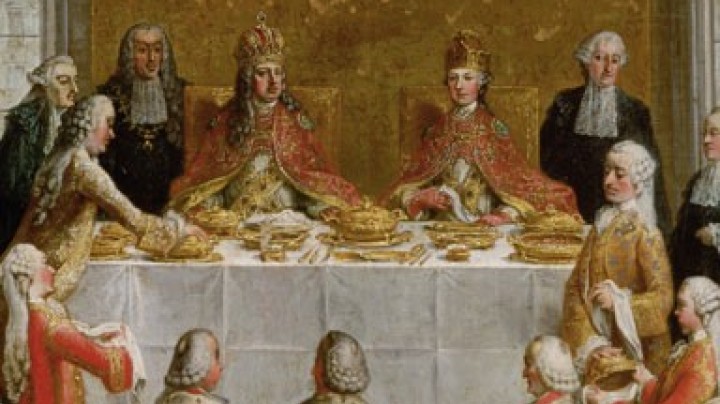Ludwig Viktor – ‘Archduke Luziwuzi’
The youngest brother of Emperor Franz Joseph, Archduke Ludwig Viktor – or Luziwuzi (pronounced Lutzivutzi), as he was called in the family, where he was the indulged and cosseted youngest child, was regarded as an eccentric oddball. The archduke’s homosexuality was an open secret.
Within his personal circle it was well known, but not spoken of openly in order to maintain a pretence of ‘morality’. The reason why the obvious homosexuality of the emperor’s brother was not a matter of public knowledge can be found in the strict press censorship that prevailed at the time. The press had to be extremely cautious when publishing reports about the imperial family.
This is why most descriptions of Ludwig Viktor contain only more or less veiled hints about his sexual preferences. An example of this is provided by the memoirs of Princess Nora Fugger, who was generally very critical of the archduke’s personality without however openly referring to his inclinations: according to her, Ludwig Viktor was ‘completely different from his brothers, adept at neither military nor artistic matters, puny, unmanly, affected and of repellent appearance’.
Within the family Ludwig Viktor assumed the role of an eccentric oddball. Even Franz Joseph, the otherwise invariably severe head of the family, saw himself as his youngest brother’s protector and tolerated Ludwig Viktor’s escapades. He was considered to be a difficult character: while he is described as extremely entertaining, with a gift for repartee, he was also feared for his sharp tongue. In particular his sister-in-law Empress Elisabeth accused him of causing strife in the family with his intrigues.
As an archduke, Ludwig Viktor enjoyed many privileges. Financially secure, he had at his disposal a principal residence in keeping with his status on Vienna’s Schwarzenbergplatz, designed by the leading architect Heinrich Ferstel. He also had a magnificent summer seat at Schloss Klessheim near Salzburg. Ludwig Viktor was very popular in Salzburg, and as a member of the imperial family became one of the leading lights of the city’s society. He assumed the patronage of the Salzburg Society of Art, and threw large parties. However, officers stationed in Salzburg were soon forbidden to accept his invitations. The reason given for this on the quiet were the archduke’s ‘unnatural inclinations’.
Ludwig Viktor made little attempt to hide his homosexuality. For a long time his lifestyle was tacitly tolerated. Eventually he became involved in a major scandal, resulting in his banishment from court. This had occurred when the archduke made unwanted advances in a public baths for men, which ended in a punch-up, as Princess Fugger relates: ‘One fine day a real scandal came to pass, a brawl in a public baths. It was said that the archduke had had his ears boxed and been forced to take to his heels. This scandalous affair was reported to the Emperor – naturally in the most lurid colours. Outraged, he ordered his brother to leave Vienna immediately and retire to Schloss Klessheim’.
It is not known why Franz Joseph now suddenly dropped his brother after having tolerated his lifestyle for so many years. The heir to the throne Franz Ferdinand has also been identified as one of the principal figures behind his banishment; the former had never forgiven the emperor’s youngest brother for being one of the main opponents within the imperial family of his controversial morganatic marriage to Sophie, Countess Chotek.
The archduke spent the rest of his life living in seclusion at Schloss Klessheim. In 1915 he was declared insane and placed under supervision. Ludwig Viktor died in 1919, that is, after the end of the Monarchy, in his adopted home of Salzburg, where he was laid to rest in Siezenheim Cemetery.

















